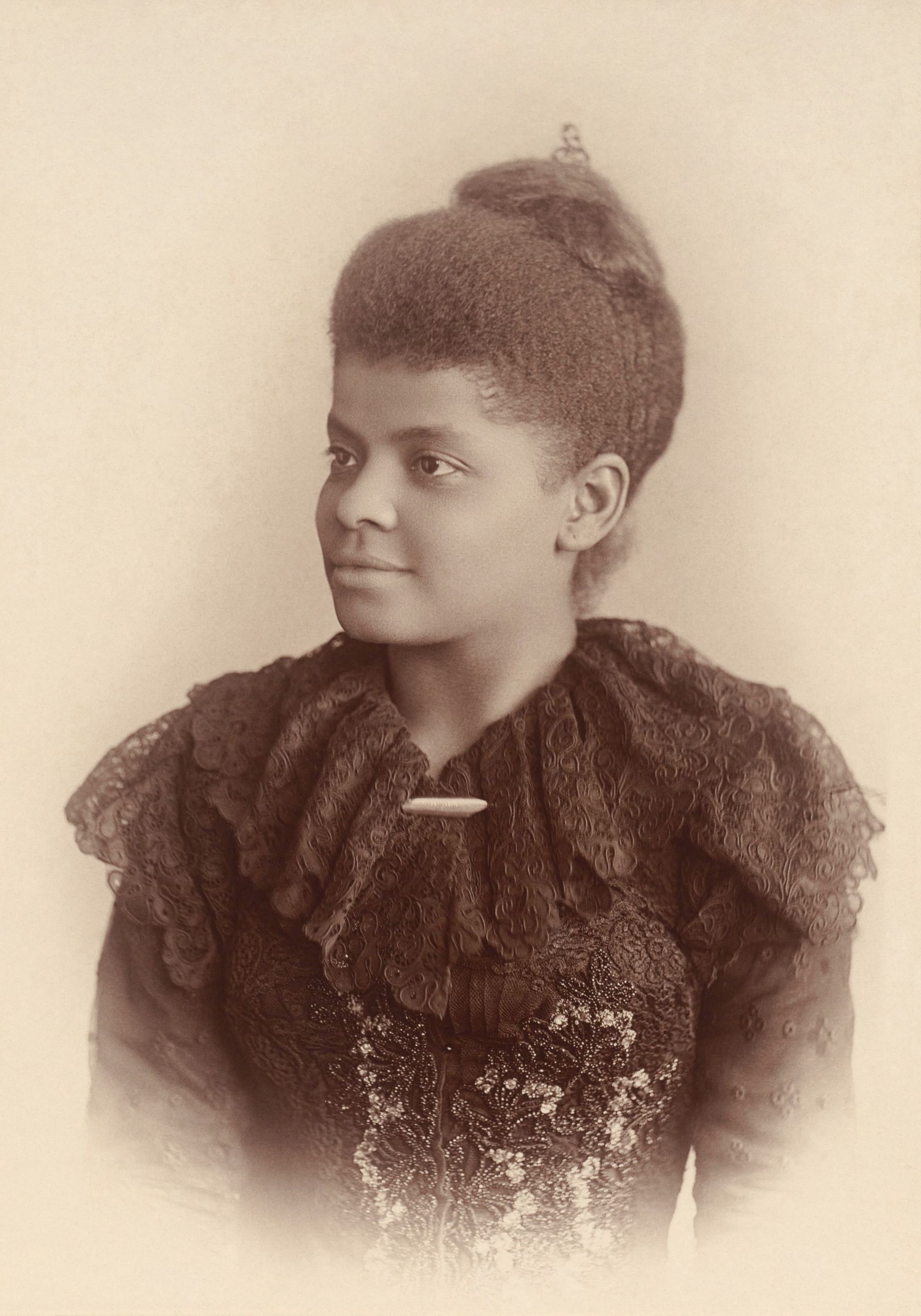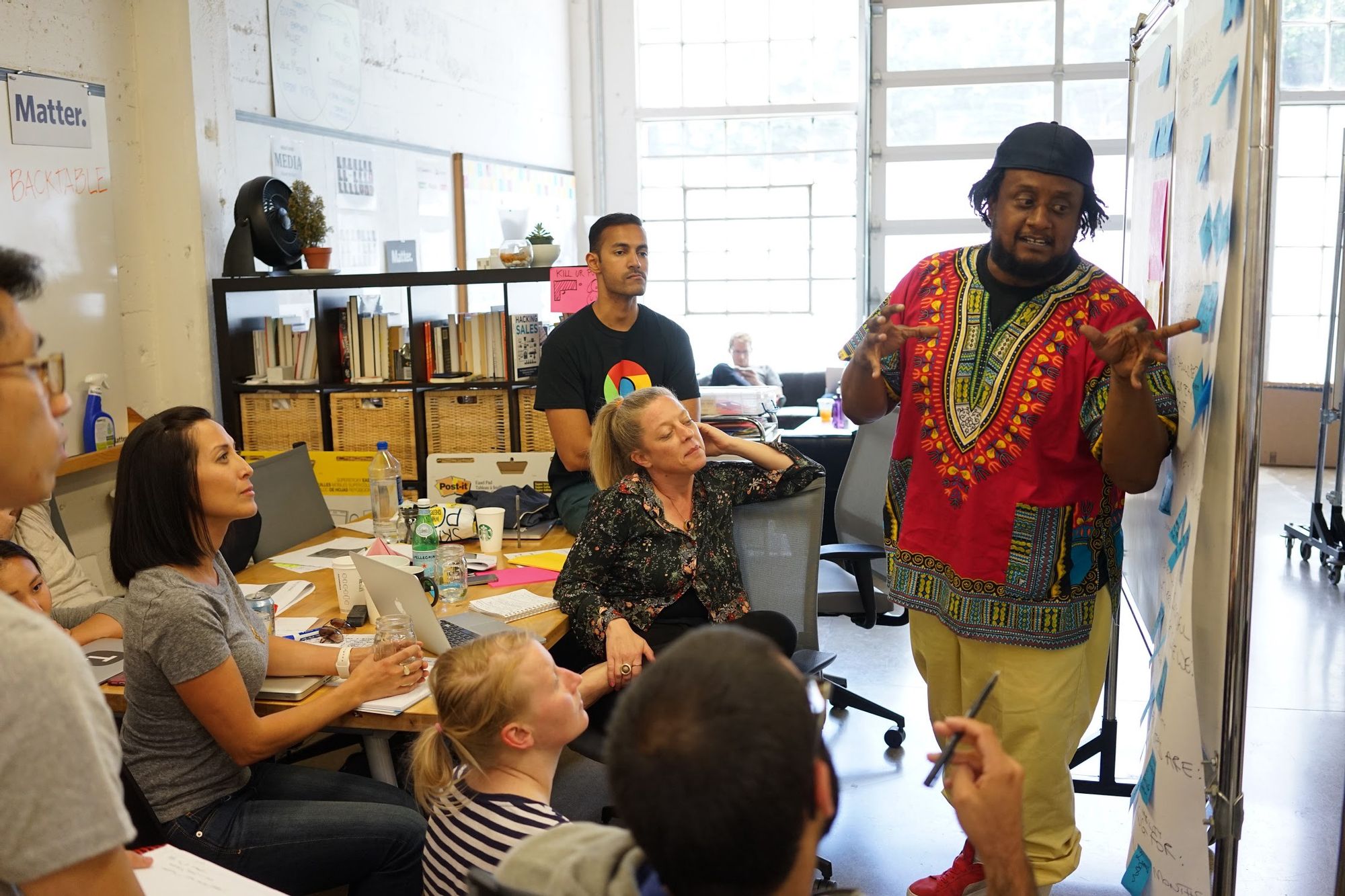Be Better!

Top highlight
Last year I had the honor of participating in the United State of Women Summit, a gathering focused on gender equality and empowerment that kicked-off the #StateofWomen movement. Oprah Winfrey, in one of the plenary sessions, asked, “what can men leaving here [Summit] do?” Then First Lady Michelle Obama answered simply: “Be Better.” She went on to talk about what that would look like for men as fathers, husbands, and employers. That response was greeted with applause, laughter and a resounding feeling of that’s the truth. The Summit and interview has stayed with me and influenced my career. How do we create the conditions where everyone can “be better” — improve with a united vision, while recognizing it will take a variety of approaches to get there?
“The people must know before they can act, and there is no educator to compare with the press.” — Ida B. Wells

When I think about inspirations that guide me, I can’t help, but reflect on the life of Ida B. Wells. Not only was she a founder of the NAACP, a suffragist, feminist and early leader of the Civil Rights Movement, she was also a journalist and newspaper editor. Ida knew intimately the power of the press in moving the world forward or causing it to fall back. So it is interesting that I find myself in a position to think not only about the role of the press, but now media as a whole and its power to shape narratives and perceptions. Ida is right that it is only when you are knowledgeable and have a supportive learning community that you will be able to act — act in a more informed, more inclusive and more empathetic way. She’s also right to speak to the power of the press and media in being able to play a critical role in that equation.
An Inclusive Society is Good For Business
But the road to get there isn’t easy, and founders often ask us what’s the silver bullet on inclusion so we can get back to “what’s important” — ROI, product launch, etc… when it comes to business. But diversity and inclusion are inextricably tied to the success of their ventures. In 2015 McKinsey released a report that found companies perform financially better with a more diverse workforce. “The analysis found a statistically significant relationship between a more diverse leadership team and better financial performance. The companies in the top quartile of gender diversity were 15 percent more likely to have financial returns that were above their national industry median. Companies in the top quartile of racial/ethnic diversity were 35 percent more likely to have financial returns above their national industry median. Companies in the bottom quartile for both gender and ethnicity/race were statistically less likely to achieve above-average financial returns than the average companies in the dataset (that is, they were not just not leading, they were lagging).” What would happen if diversity and inclusion were a core part of the initial development phase of a company?
Everyone is Talking About It…
Diversity and inclusion have been hot, unsolvable issues in tech and media for years. On the surface, it can appear to be a problem of the recruitment pipeline — the tired excuse of “we can’t find any qualified candidates from x, y, z, group”. But as you dig deeper, it becomes clear that this “pipeline problem” is the product of systemic inequalities that continue to be perpetuated throughout society. This is so ingrained that any type of approach or solution developed needs to incorporate the heart and the mind. These are two things that get people really nervous, because this implies that not a single algorithm or day-long workshop is going to “fix” what’s happening in our companies and communities today. The connection between the heart and mind is the one where ideas become action and actions become movements for change. Storytelling is one of the most important vehicles for realizing that connection, so it’s not surprising that media is at the center of diversity and inclusion — whether it is perpetuating those fears or rewriting these long entrenched narratives. We have a responsibility to take that mantle of leadership and do something about it.
At Matter, we often talk about the importance of experiments to help us solve and better understand complex problems.
“If the old model is broken what will work in its place? The answer is nothing will work, but everything might. Now is the time for lots of experiments.” -Clay Shirky
So we focus on the development of ventures and the growth of the media ecosystem through our Partners to figure out what’s next for media. Similarly, in order to address the needs of a more informed, inclusive and empathetic society, we have to try things both internally and with our entrepreneurs.

How do we “be better” at Matter?!
At Matter we are open and transparent about our journey to creating a more informed, inclusive and empathetic society. Our approach to “being better” is:
- Understand the current state
- Identify questions/areas you want to work on, i.e. create a learning agenda
- Seek others that are on the path, get their expertise and collaborate
- Prototype along with your learning agenda based on the questions/needs you’ve identified
- Incorporate those learnings, keep at it and share!
Above all adopt a posture of learning and humility. Like in anything you’re striving to improve in it takes time — even mistakes are part of the process. In that spirit we’re going to be focusing on a couple of things at Matter.
● Establishing strong leaders. We want to talk about diversity and inclusion from the beginning with our entrepreneurs. This has to start before a crisis, because this is more than PR. It is about understanding the intrinsic value inclusion has for your company from the beginning.You know that a company really values and walks that talk of D&I if this is coming from the C Suite and isn’t isolated to HR or affinity groups. Everyone has a part to play, but as Nicole Sanchez, VP of Social Impact at GitHub recently shared you can tell if it is sustainable and successful if the CEO is involved.
● Developing a clear culture and norms. We’ll be exploring with our teams how this can be part of your culture, norms and practices from day one not just in the way that you hire or structure the company going forward, but also how you design, what approach you take to identifying needs and how your tell your story then communicate with the larger world.
● Moving beyond bias. We’ll be looking at unconscious bias approaches and materials with each other and our entrepreneurs. The approach of unconscious bias training is just one and it is important to note that it is not the only way for an organization to think about the important issues that we are facing. There are times when we need to call things out clearly and let people know that’s not our values and that’s not our behavior and that’s not our truth.
● Creating lasting relationships. Bonds of friendship and trust are key when establishing a successful work environment where the values of inclusion exist. That’s why as a core team have discussions, bonding activities and feedback sessions to continually explore what it means to have Matter be an empowering and inclusive place to work. This is also true with our entrepreneurs. During bootcamps, retreat and check-in(s), we create opportunities for teams to really get to know each other so they better weather the natural ups and downs of being an entrepreneur, but more importantly know how to rely and learn from someone that is different from you on the surface yet is also sharing the same journey.
We’ll be trying new things, learning, writing and discussing diversity and inclusion with our entrepreneurs, Partners and larger community. We would love for you to come join us.
Join Us!
I’m still on this journey and learning in real-time, especially now that I’m a part of media and exploring diversity and inclusion through that lens. But I have to thank some key people that have been encouraging me on this path since the beginning in particular Harriet McLaughlin Stafford, Samuel P. Stafford, Kimberly Bryant, Vasu Mohan, Nicole Sanchez, Anil Dash, and Fanshen Cox DiGiovanni. All of you have embodied for me — “If they don’t give you a seat at the table, bring a folding chair.” — Shirley Chisholm. But more importantly build a larger building so everyone can show-up alongside you.
Applications for Matter close on April 3rd. If you’re interested in coming on this journey with us and building businessese aimed at amplifying voices and truly creating a more inclusive society, you should apply today.
Matter is an SF & NYC-based startup accelerator and venture capital firm grounded in the principles of design thinking that supports early-stage media entrepreneurs and mission-aligned media institutions building scalable ventures that make society more informed, inclusive, and empathetic.
Our mission has never been more important than it is today. We are looking for scrappy entrepreneurs inspired to make real change. Our next cohort starts on June 5th. Apply now.
For regular updates, follow us on Facebook, Twitter, and Instagram, and subscribe to our mailing list.

